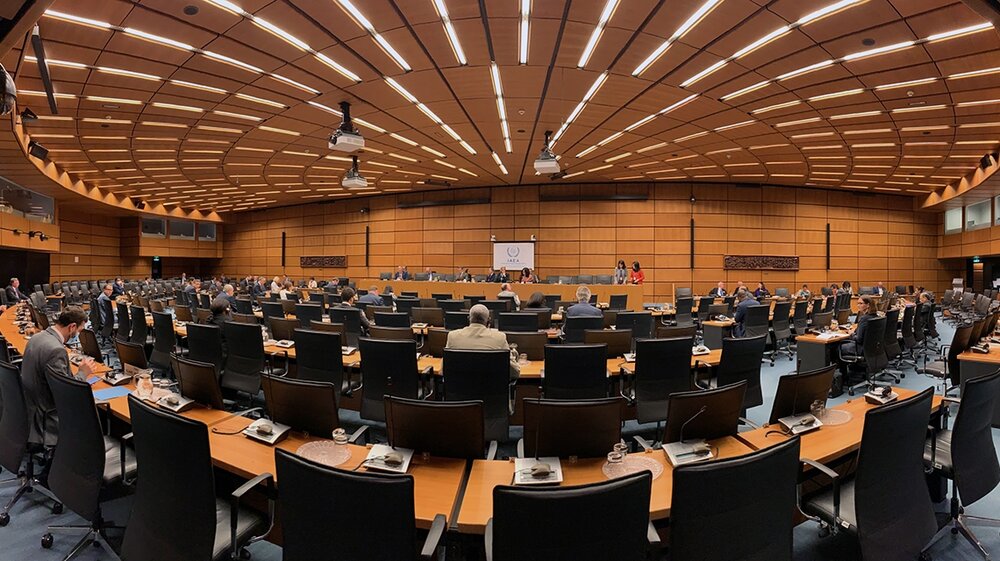TEHRAN, (MNA) – Nader Entessar, Professor Emeritus of Political Science from the University of South Alabama, in an interview with the Mehr news highlighted the US' pressure on IAEA; leveraging the international body to reach its anti-Iranian targets.
In a meeting on June 19, the Board of Governors of the International Atomic Energy Agency passed a controversial resolution to push for intrusive inspections of two nuclear sites in Iran.
The board urged Iran to fully cooperate with the Agency and satisfy the Agency’s requests without any further delay, including by providing prompt access to the locations specified by the Agency.

Iran believes that the IAEA Board of Governors has referred and given credence to the information obtained by espionage activities or to the claims raised by inauthentic sources, i.e. the US and the Zionist regime, to adopt the recent resolution against Iran.
Rafael Grossi says Iran has denied the agency access to two "suspected" former sites, while the Islamic Republic asserts that it cannot give access to IAEA, merely due to baseless claims made by the enemies.
It is against its right to preserve sovereignty and IAEA regulations, Iran says, underlining that the Islamic Republic will never allow the agency to violate its legal frameworks.
To shed light on the issue, Mehr news interviewed Professor Nader Entessar.
Here is the full text of the interview with him:
Do you consider the recent IAEA resolution a consequence of E3-US cooperation? Will the US and EU be able to hit their set target?
The US and E3 have always cooperated with each other in their Iran policies and the passage of the recent IAEA resolution was very much along these lines. Also, the US was successful in gaining the support of a number of regional and Arab countries as well as some other countries of the Global South that voted for the recent IAEA resolution against Iran.
"Passage of the recent IAEA resolution against Iran is along with US-EU cooperation."
Do you think that the US is seeking to refer Iran's case to UNSC in a bid to impose international sanctions against the country? Iran has been under the toughest sanctions in the past years. What will be the impact of probable sanctions on Iran?
Yes, I do. The US believes it has the upper hand if Iran's case goes to the UN Security Council. Of course, if the UN reimposes international sanctions against Iran, the US will have an easy path towards achieving its goals. The role of China and Russia will be much more crucial this time around than in the previous rounds of UN-imposed sanctions on Iran.
In case the IAEA continues its current stance towards Iran, how Iran-IAEA positive cooperation will be affected?
"The role of Russia and China is much more crucial, now."At a minimum, Iran may suspend its voluntary implementation of the Additional Protocol. Beyond that, the simple truth is that Iran's Safeguards Agreement with the IAEA gives the country little wiggle room to maneuver around the IAEA resolutions. The IAEA, like almost all international organizations, is susceptible to US pressure, which at times could be suffocating.
Will E3-US' efforts and measures make a change in Iran's stances? Will the Islamic Republic retreat from its principles and rights?
I am not in a position to provide definitive answers to this question.
The answer to this question will have to be given by those in charge of making the Islamic Republic's foreign and security policies. Whatever decisions Iran makes in this regard, must be in the interests of the country's national security.
Interview by Payman Yazdani & Haniyeh Sadat Jafariyeh


No comments:
Post a Comment